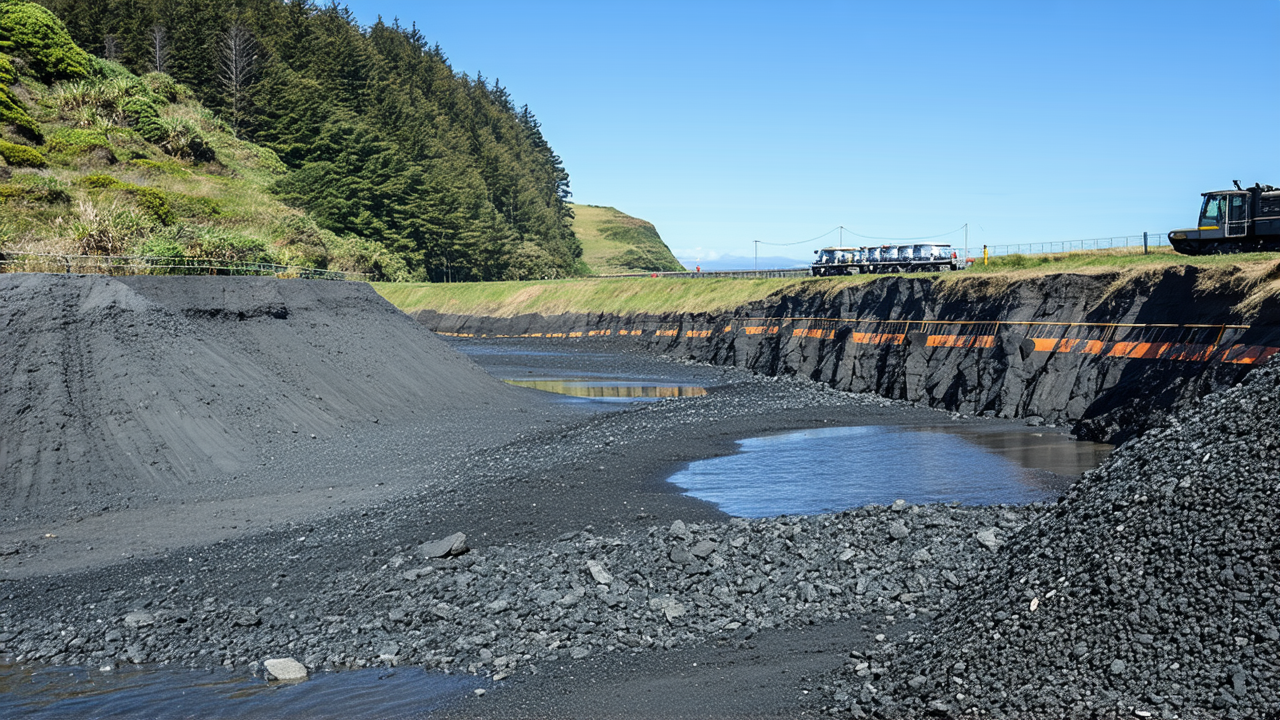Elation as Whanganui Gains a Voice in Fast-Track Seabed Mining Decision
Elation as Whanganui Gains a Voice in Fast-Track Seabed Mining Decision
In a significant development, Whanganui District Council has been recognized as a relevant authority in the fast-track application process for a seabed mining project off South Taranaki. This recognition has opened the door for the council to provide input on an Australian company’s proposal, a move that has been met with elation by local officials.
The Fast Track Approvals Act 2024, introduced by the coalition government, aims to streamline the approval process for certain projects, but it limits public input to a select group of stakeholders. Under the Act, only relevant local authorities, identified iwi authorities, and select others can submit written comments on the application. This has sparked concerns among environmentalists and community members, who argue that the voices of scientists, divers, and environmental advocates are being excluded from the decision-making process.
Whanganui Councillor Charlotte Melser, who has long opposed seabed mining in the region, expressed her relief at the council’s inclusion. "It means our foot is in the door to have our say about how this proposal would negatively impact our district. I was elated," she said.
The proposed project, led by Trans-Tasman Resources (TTR), aims to extract up to 50 million tonnes of seabed material annually, with an estimated 5 million tonnes of vanadium-rich titanomagnetite concentrate being recovered. The remaining material would be dumped back into the sea, raising environmental concerns about the impact of sediment plumes on the region.
TTR claims the project would bring significant economic benefits, including 305 jobs and infrastructure upgrades in New Plymouth and Whanganui. However, the council has raised concerns about the potential negative impact on the environment, cultural heritage, and the region’s economic future, particularly in relation to offshore wind farming opportunities in the Taranaki Bight.
The councils named as relevant local authorities will have the opportunity to nominate representatives to the decision-making panel, provide written comments, and speak to those comments if a hearing is held. They have already convened with iwi representatives, TTR, and the EPA’s expert panel convenor to discuss the required expertise and the timeline for decision-making.
Whanganui Council Chief Executive David Langford emphasized the need for careful consideration of the proposal’s potential economic disbenefits, particularly in relation to offshore wind energy development. "Our view is that this one project could stand in the way of other projects which would not only provide significant economic benefits for our district (and beyond), but also better align with the government’s strategic objectives around climate, energy, and industrial transformation goals," he said.
The complexity of the application, combined with the novelty of the fast-track process, has underscored the need for a thorough and transparent decision-making process. Councils have stressed the importance of including all relevant perspectives, regardless of their stance on the proposal.
As the decision-making process moves forward, the inclusion of Whanganui and other local authorities is seen as a crucial step in ensuring that the voices of those most affected by the project are heard.
